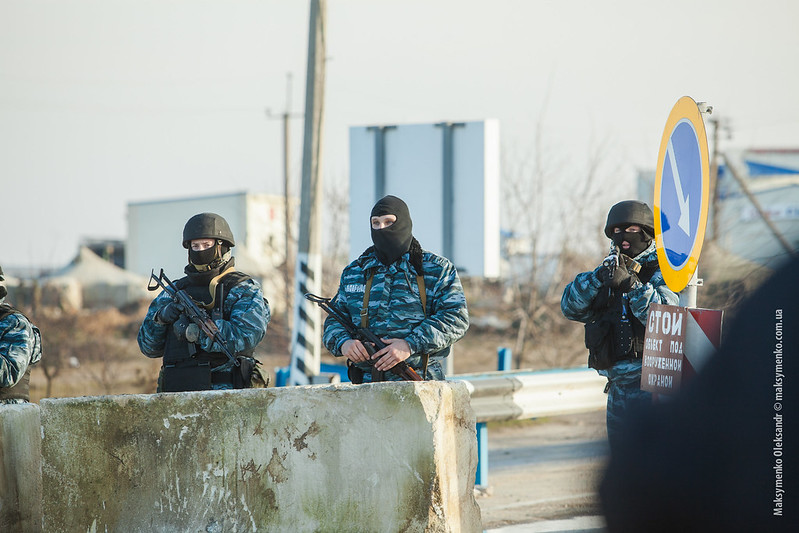WASHINGTON – Ukrainian war veterans and American lawmakers watched as Rep. William Keating, D-Mass., played a video clip of a firefight in eastern Ukraine during a hearing before the House Foreign Affairs Committee today.
“As you’ve seen from the clips we’ve just shown, the war in eastern Ukraine continues. It is not a cold conflict by any means,” said Keating, who chairs the Subcommittee on Europe, Eurasia, Energy, and the Environment.
The hearing highlighted the impacts of and possible solutions to the ongoing, six-year-old conflict in eastern Ukraine between Ukrainian and Russian forces which has displaced over 1.5 million people and left more than 13,000 dead.
“The continuous provocations by the Russian Federation must be dealt with,” said Rep. Adam Kinzinger, R-Ill., “Russia is actively trying to prevent democratic values from taking hold in the region.”
Russia annexed the Crimean Peninsula in March 2014, claiming that it was acting in the interest of “ethnic Russians” in Crimea after holding a disputed referendum that showed a majority of Crimeans favored joining Russia.
The Kremlin has also denied that Russian soldiers were ever deployed to eastern Ukraine, claiming instead that “separatist groups” were in control of the region. A trove of reporting from international journalists and independent organizations overwhelmingly suggests otherwise.
“I used to joust with the Russian ambassador every week about Ukraine, and I never saw him get as angry as he did when I talked about Russian soldiers killed in Ukraine who were not recognized by the Kremlin when they returned home. They were not given soldier’s funerals, and their families could not publicly mourn,” said Dan Baer, the former United States ambassador to the Organization for Security and Cooperation in Europe.
On the ground in Crimea, dissent has been silenced, experts said.
“Six years ago, I filmed a pro-Ukraine protest in Crimea for Vice News, one of the last protests that would be permitted before the annexation. Since Russia took control, those who disagree with Moscow have either fled or been jailed with severe sentences, in some cases disappearing entirely,” said Simon Ostrovsky, a journalist who has covered the region for nearly two decades.
Moscow is now seeking special status for Crimea, Ostrovsky said. That would give Crimea veto powers in Kyiv if the peninsula were to be reintegrated, effectively giving Moscow the ability to veto any moves that Ukraine makes toward joining western institutions, like the European Union or NATO.
According to Stephen Nix, the Eurasia director for the International Republican Institute, 82% of Ukrainians favor the reintegration of Crimea into Ukraine. “But until the Kremlin removes its troops and seals the border, that kind of peace will be impossible,” Nix said.
The United States should continue its harsh economic sanctions on Russia, Nix said, because the sanctions are working. The United States, he said, should also encourage European allies to do the same and should fill the “information vacuum” in eastern Ukraine and Crimea, where most residents have access only to the Russian television.
When asked if the reunification of Crimea with the rest of the Ukraine was possible, experts were optimistic.
“It’s possible,” said Nix. “The vast majority of Ukrainians want it — but it will take a number of small steps throughout a long-term process. Sanctions will be the only thing that bring [Russian President Vladimir] Putin back to the negotiating table.”

